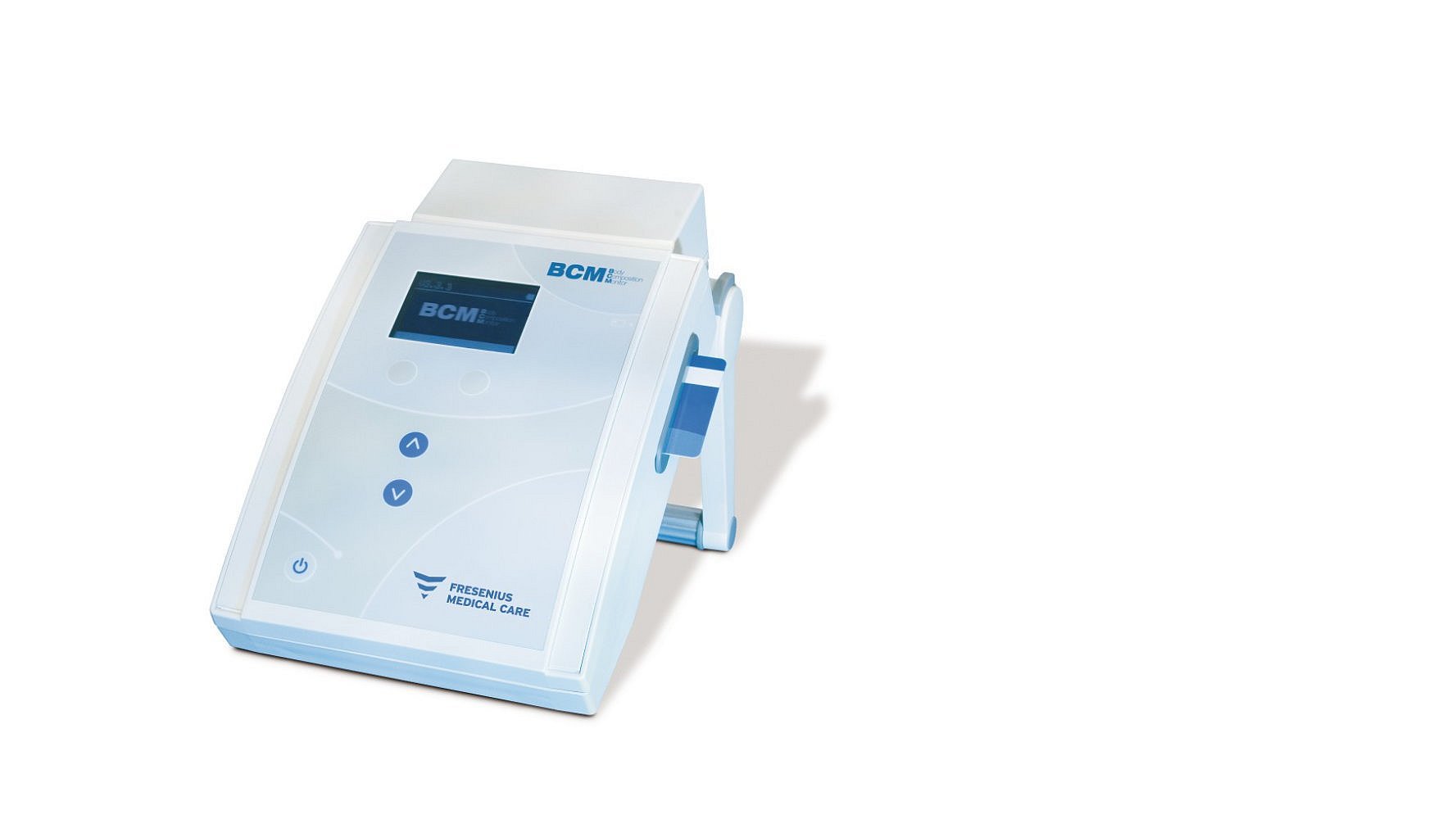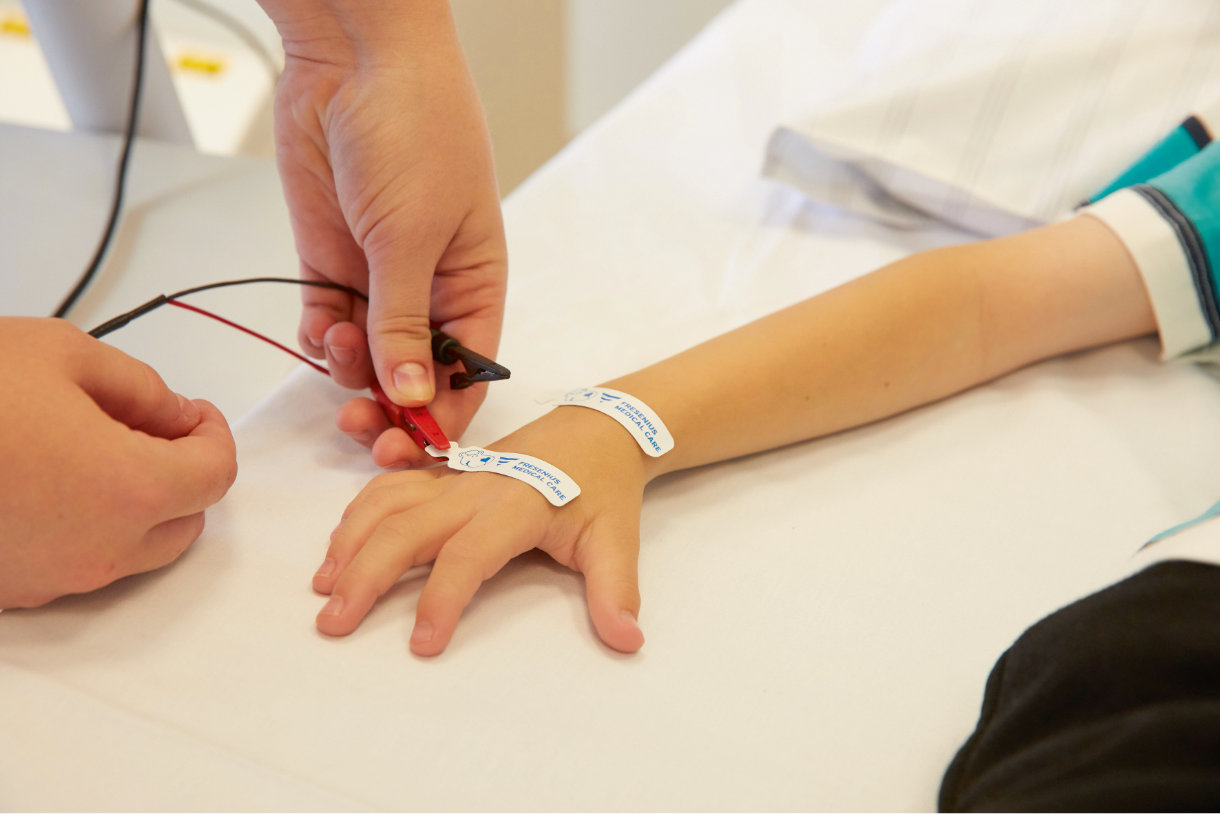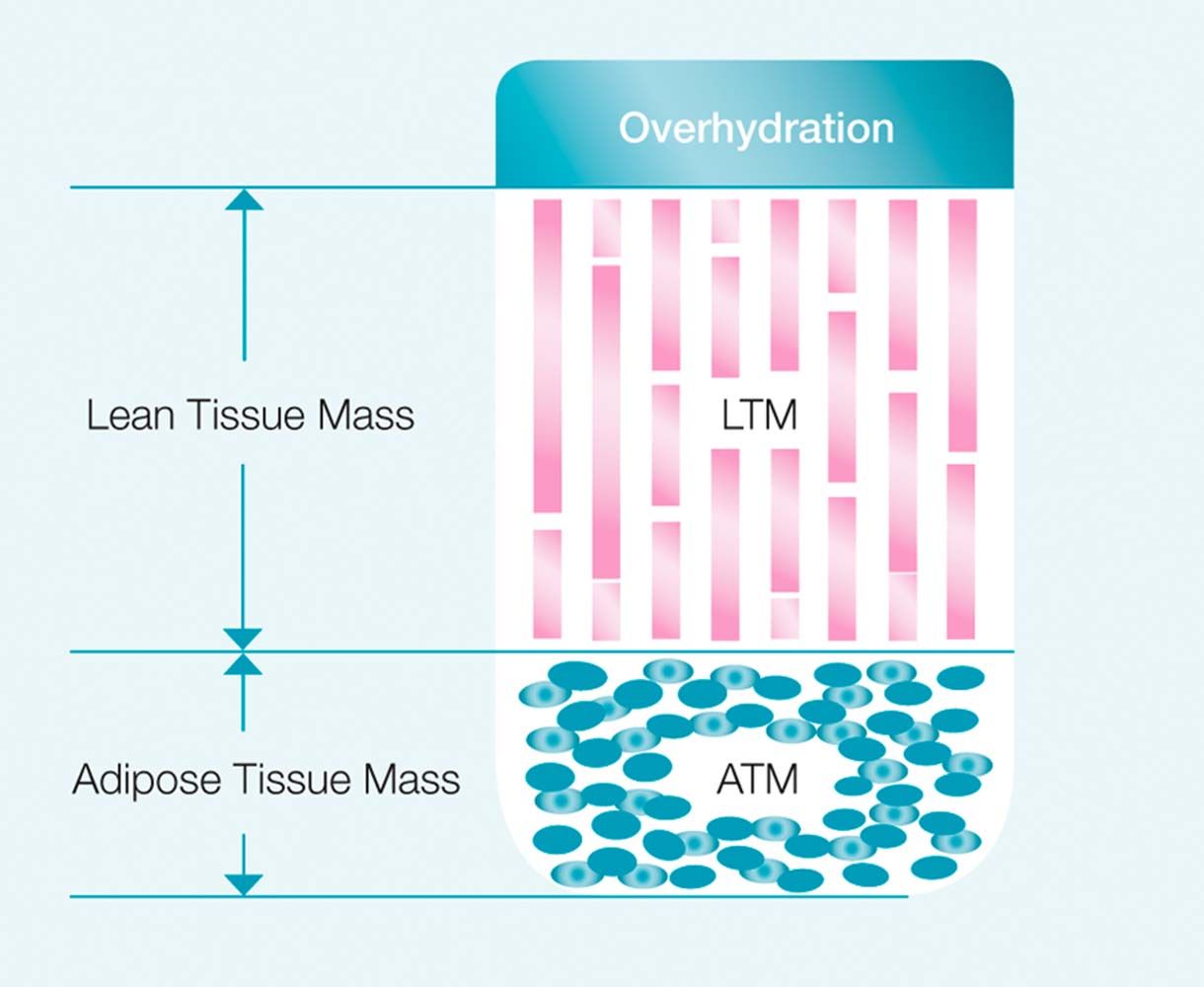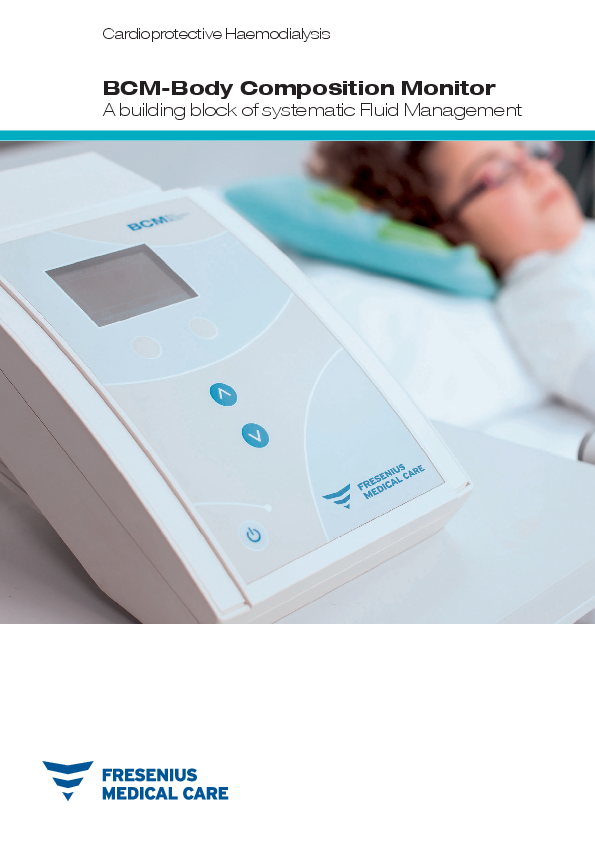
Routinely assess fluid status
Driven by Cardioprotective Hemodialysis, we aim to offer holistic solutions for patients and healthcare professionals. Within our comprehensive portfolio, the BCM - Body Composition Monitor is a building block of systematic Fluid Management and thus, a support for Cardioprotective Hemodialysis.
Why determining the fluid status can be challenging
In standard clinical practice, a patient’s dry weight or target weight is an estimate which is determined by the clinical observation of various indications, including the presence of oedema, the blood pressure values and shortness of breath. The frequent occurrence of comorbidities in hemodialysis patients can make the signs of fluid status ambiguous, however.1
Where the BCM - Body Composition Monitor can support
The BCM - Body Composition Monitor was specifically designed to determine the amount of fluid overload that arises in patients suffering from renal failure. This allows for a simple, non-invasive and objective assessment of an individual patient’s fluid status.2
As a result, the BCM - Body Composition Monitor may help the clinician to determine a patient’s individual dry weight more accurately and, as a result, to remove the correct amount of fluid.
Advantages of bioimpedance-guided Fluid Management
The BCM - Body Composition Monitor allows for the practical and accurate determination of the fluid status in contrast to alternative assessment methods.3
Assessing the fluid status with the BCM - Body Composition Monitor:
- Is non-invasive, simple and fast (approx. 10 sec. for pure measuring process)
- Is highly reproducible4, 5
- Validated against standard reference methods5
- Is possible with HD, PD and pediatric patients
- Can be used for a more accurate dialysis dose assessment by providing the urea distribution volume as an input on the Online Clearance Monitor of most HD devices from Fresenius Medical Care6
- The BCM - Body Composition Monitor provides a quantitative measure of lean tissue and fat tissue mass because it is able to distinguish muscle mass from fluid overload. This allows for an improved diagnosis of malnutrition in ESRD patients7 and allows for an adequate therapy intervention
Cardioprotective Hemodialysis
The advantages of the bioimpedance-guided fluid management are relevant for Cardioprotective Hemodialysis. Normohydration and the avoidance of higher ultrafiltration rates are associated with better outcomes for dialysis patients.2, 8, 9
Regulating the patient's fluid status through Advanced Fluid Management with the BCM - Body Composition Monitor as its key component may lead to reduced mortality10,11, better control of hypertension and a reduction of antihypertensive medication.12
The technology behind the BCM - Body Composition Monitor
The BCM - Body Composition Monitor applies the Bioimpedance Spectroscopy (BIS) technique.
To obtain the clinically-relevant output parameters, two advanced validated physiological models are used in the BCM - Body Composition Monitor:
- A volume model which describes the electrical conductance in a cell suspension, enabling the total body water and extracellular water as well as the Intracellular Water (ICW) to be calculated.5
- A body composition model calculating the three principal body components of Overhydration (OH), Lean Tissue Mass (LTM) and Adipose Tissue Mass (ATM) from the ECW and TBW information.13

Extensive experience
We have almost a decade of experience in fluid management based on the BCM - Body Composition Monitor. All relevant output parameters have been validated against standard reference methods in a number of tests involving more than 1,000 patients and healthy controls.14 Our fluid management approach based on the BCM - Body Composition Monitor is suitable for use in HD, PD 15 and pediatric patient populations.16
Especially validated for ESRD patients | Suitable for HD & PD patients | Over 29,000 patients measured* | Appropriate for pediatric patients |

